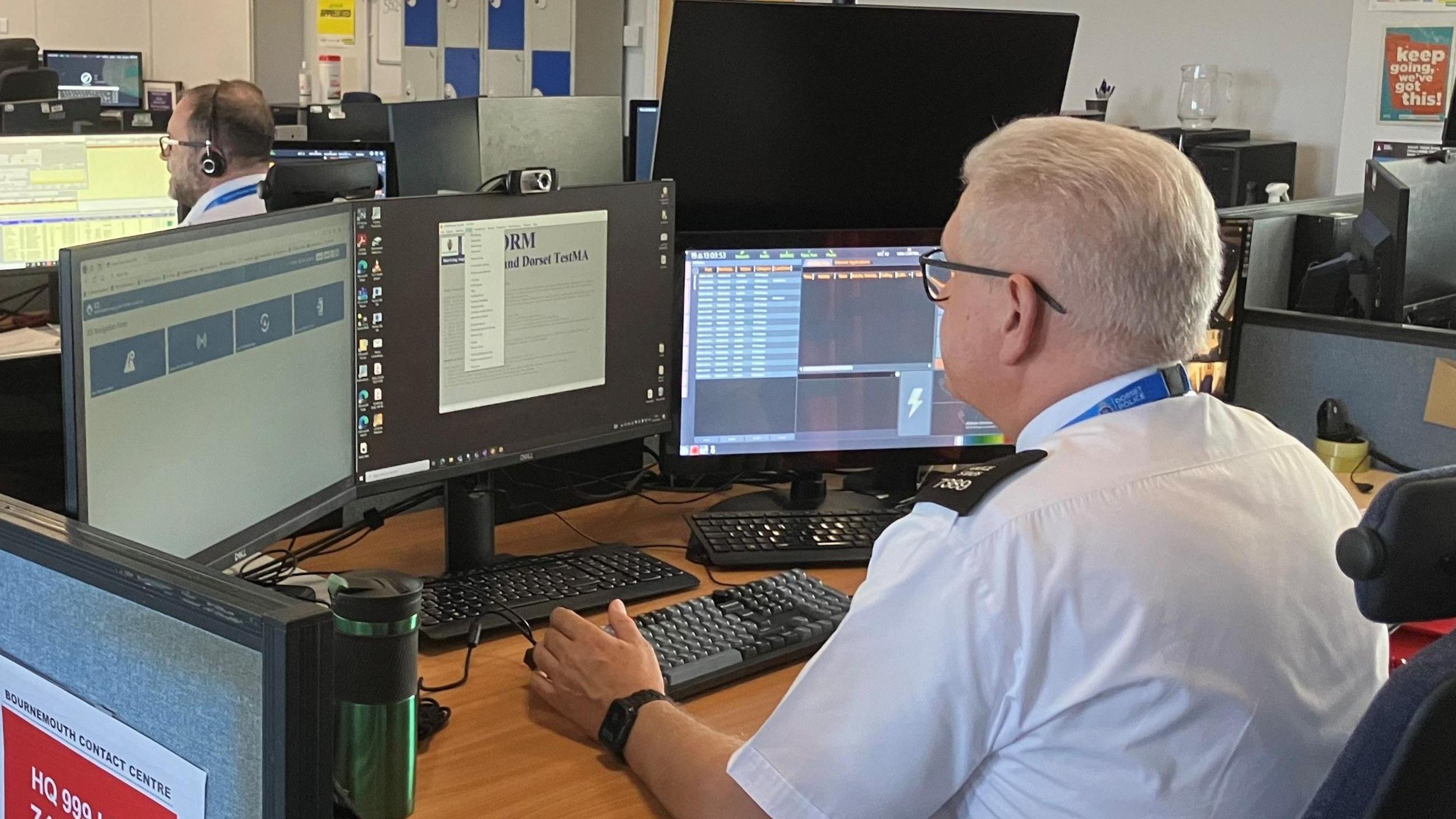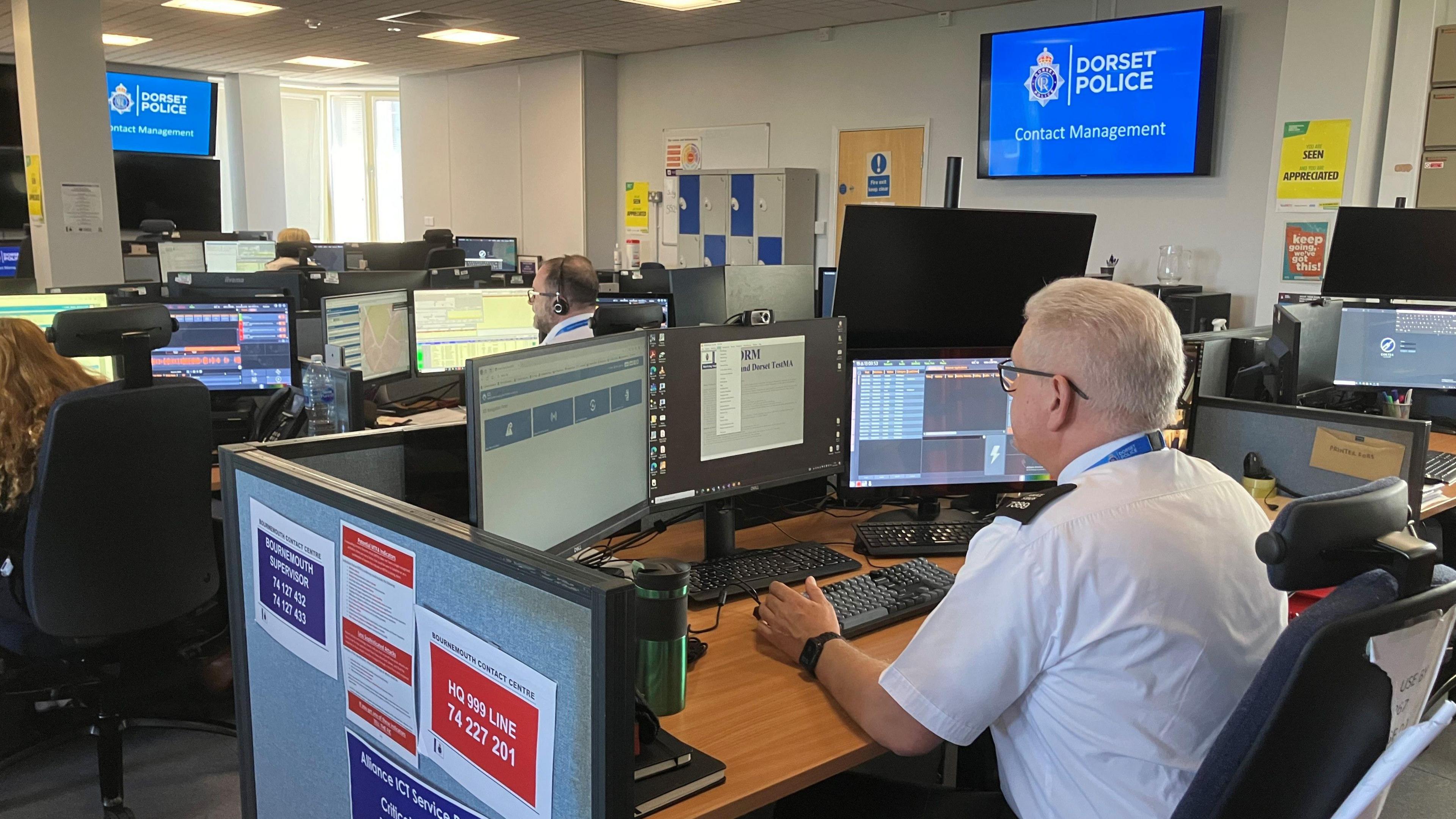Victim video call service boosts arrests - police

Dorset Police said its video call service was chosen by about 165 crime victims a week
- Published
A police force has said an initiative to allow victims of crime to speak to officers via video is delivering quicker arrests.
Dorset Police said the rate of positive outcomes, such as charges and cautions, had also increased.
Since a trial in Dorset in July 2023, more than 11,000 people have requested to use Enhanced Video Response (EVR), the force said.
Optional video interviews - often called Rapid Video Response (RVR) - have been introduced for people such as victims of domestic abuse, who may not want officers or marked police cars at their home.
Dorset's scheme was formally launched in July 2024 and is chosen by about 165 crime victims a week, the force said.
Ch Supt Stewart Gates said: "So far, incidents that have been dealt with by our EVR team have resulted in an arrest or formal suspect interview almost four times higher than elsewhere in the force.
"Investigations leading to a positive outcome, such as an offender being charged or given a caution, [are] more than three times higher."
Dorset Police and Crime Commissioner David Sidwick said because of EVR "responses to the highest-grade emergency calls are improving".
He said the service delivered "increased efficiency, better use of officer time and a reduction in vehicle costs, as well as fuel and maintenance".
The commissioner added: "These savings are then being invested back into the frontline, helping to reduce response times to emergency calls requiring immediate or urgent in-person attendance."
The force said it currently responded to 80% of the most urgent emergencies within 20 minutes.
Follow BBC South on Facebook, external, X (Twitter), external, or Instagram, external. Send your story ideas to south.newsonline@bbc.co.uk, external or via WhatsApp on 0808 100 2240, external.
Related topics
- Published22 July 2024
